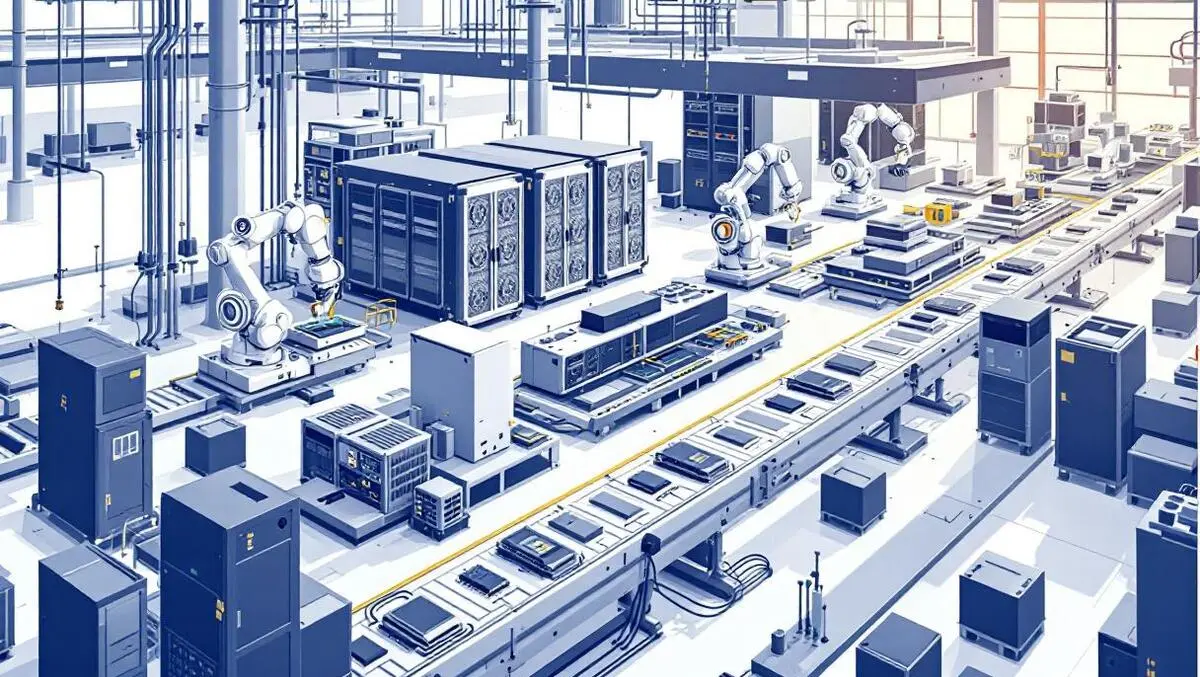
Industrial Strategy hailed as digital, skills & supply chain reforms urged
The government's launch of pivotal elements from its new Industrial Strategy has prompted a surge of responses from across the technology, manufacturing, and infrastructure sectors, with many leaders noting opportunities as well as urgent priorities for action.
One of the more understated but potentially transformative strands of the policy is support for semiconductor research.
Phillip Kaye, Co-founder and Director of Vespertec, said: "Semiconductors get a passing mention in this morning's soft-launch of the Industrial Strategy, but they might be the key to its success.
"If the next industrial revolution is going to come in the form of AI factories, then UK businesses need access to the most advanced hardware possible to ensure they're not left behind. Semiconductor materials are the bedrock of all modern computing, from GPUs to CPUs, and the UK's universities and research institutions have long led the charge in their development.
"Boosting funding for this research in universities across the UK, starting with Wales, might well be the secret ingredient that keeps the UK running shoulder to shoulder with tech giants in the US, Taiwan and China. Here's hoping the Industrial Strategy, when published in full, reflects that."
Steve Salvin, CEO and Founder at British AI firm Aiimi, says "While the government highlights eight pillars of growth, I actually see seven standing on one crucial foundation: Digital and AI. This area will be the most important. Because the true potential of these high growth sectors over the next century - whether it's aerospace, climate tech or financial services - will hinge on sustained investment in digital infrastructure and AI.
"Central to this is data - not just as a by-product of digital systems, but as a core national asset. And it's highly encouraging that the Industrial Strategy has highlighted this so prominently. Building secure, interoperable systems to unlock the value of data will be essential for innovation, and driving competitiveness across the economy.
"If we can harness and own the next generation of technology advancement, we can become an engine of growth. The UK has an enviable computing heritage - Alan Turing's pioneering work at Bletchley Park is proof of that legacy. We now have a generational opportunity to become a leader, not a follower, once more."
However, the challenges are not limited to research and digital transformation. In manufacturing, persistent weaknesses in supply chains remain a primary concern. Chris Knight, Vice President, Automotive at NTT DATA UK&I, highlighted the urgent need for intervention, especially as UK car production has dropped to its lowest point in more than 70 years. "Supply chains are the real pressure point of British manufacturing and, with UK car-making at its lowest level for over 70 years, this Industrial Strategy hasn't come a moment too soon," said Knight. He welcomed the government's plans to establish a new Supply Chain Centre and invest in regional clusters, suggesting these moves "reduce the friction manufacturers face when trying to get products to market at competitive cost."
Knight further pointed out that heavy investment in electric vehicle (EV) manufacturing is being hindered by global disruptions, material shortages, and some of the world's highest electricity prices. The announced GBP £4.3 billion in advanced manufacturing support, and commitment to lower energy costs, were described as direct boosts to competitiveness. "Initiatives like AI Growth Zones and advanced manufacturing clusters will help make next generation supply chains a reality. By embedding digital infrastructure where it's most needed, these initiatives lay the groundwork for a faster, more adaptive, and data-led supply chain system," Knight said.
On workforce development, Aaron Merkin, CTO at Fluke Reliability, welcomed proposed investments but cautioned that more comprehensive reform is needed to tackle a skills shortage he called an immediate constraint. "The skills gap is no longer a future problem, it's a present-day constraint on productivity, innovation, and competitiveness. In our own research, 90% of respondents report the skills shortage has already impacted their organisation, particularly in frontline roles like reliability engineering and maintenance," Merkin observed. He advocated for an "integrated approach" bringing together government, educators, and employers.
Claire Hu Weber, Vice President for International Markets at Fluke, focused on energy and infrastructure. She warned that the country's clean energy ambitions risk being undermined by slow grid connections and operational reliability challenges. "Energy reform must go hand in hand with infrastructure reform. The UK's clean energy ambitions are at risk of outpacing its ability to connect and manage new sources of power," said Hu Weber. She called for accelerated approvals, skills development, and enhanced service infrastructure to ensure resilience as distributed energy becomes more prevalent.
The initial details of the Industrial Strategy—including GBP £4.3 billion targeted at advanced manufacturing, substantial investment in R&D, and sweeping changes in skills funding and regulation—have been broadly welcomed as signs of ambition. However, sector leaders remain united in urging the government to redouble efforts on digital, supply chain, workforce, and energy reforms if the UK is to secure a front-row seat in the next phase of global industrial growth.


